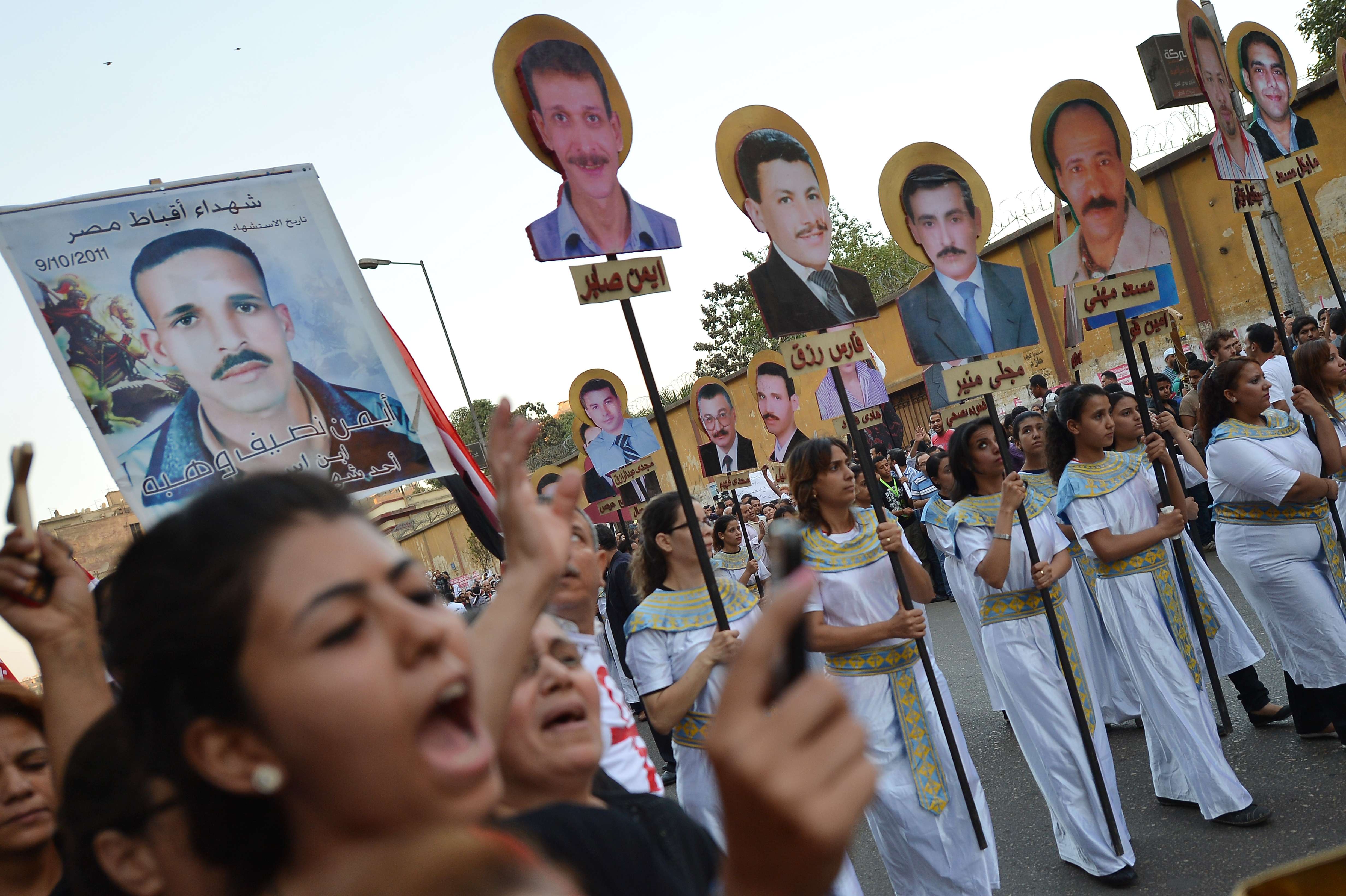“I wonder about you peasant; you use your mattock to break up the soil to earn your livelihood, so why don’t you use that mattock to tear the chests of those who inflict injustice upon you?
These were the words of the 19th century prominent reformist Gamal El-Din Al-Afghany. The question of why Egyptians do not stand up for their rights is an old one, triggered, to be sure, by disappointment about the miserable status quo and yearning for seeing it changed.
Still, the query is very much justified. The lives of Egyptians were, over the past few decades, drastically affected by numerous political and socioeconomic developments: prices soared, unemployment rose, public services degenerated, living standards declined, corruption flourished and democracy was indefinitely postponed. Undoubtedly, the responsibility of these fiascos lies primarily on the shoulders of the successive incompetent – and often corrupt – governments. Nevertheless, Egyptians exhibited great reluctance to resort to violence to challenge the ruling regime and its institutions. They kept their patience and tolerance no matter how awful their lives have become.
The conventional question was met with a uniform answer, derived from the fertile realm of political culture. The answer confirms that Egyptians are docile people, who do not see violence as the right antidote to their troubles. They are, innately, peaceful, which makes them defer to authority and respect its instructions. According to this theory, the food riots in 1977 and the rebellion of the Central Security Forces in 1986 remain the exception that corroborates the rule, rather than refuting it.
Historical experience may have contributed to this tendency. Since the time of the Pharaohs and onwards, centralization has been the norm and political participation missing. In modern times a wide gap further separated people from the state.
The modern Egyptian state was brought into existence by virtue of Mohamed Ali Pasha’s planning and initiative. In the two hundred years that followed, the state has molded and remolded politics, economics, ideology and society in isolation of the people. National planning, economic orientations, and foreign policy were imposed from above, and could be changed (or even restructured) overnight in total disregard of people’s wishes.
In fact, many Egyptian politicians from different orientations and backgrounds have looked upon their population with both contempt and arrogance. Be they khedives, pashas, monarchs or presidents, they maintained that people are inept and shall not be given a role in decision-making.
Even Egypt’s current Prime Minister Ahmed Nazif – the Western-educated Professor of Computer Engineering – alleged that Egyptians are not yet geared up for practicing democracy. As a result of this haughty posture, an enormous chasm emerged between people and their ‘upper’ state. A division of labor was set and consolidated, whereby the political elite ran the country as they saw fit while citizens stuck to minding their own business. Abraham Lincoln’s definition of democracy as a government “of the people, by the people, and for the people is totally alien here, for power and governance in Egypt is not exercised by the people; it is exclusively the prerogative of the state. No wonder that up till today, the ‘us versus them’ mentality dominates the talk of Egyptians about their government.
Additionally, Egyptians were awed into deep silence by the wide-ranging powers of the state. The respected writer and jurist Qasem Amin (1865-1908) wrote that Egyptians feared authority more than sickness and bullets. Since the state was perceived to be so mighty, actually invincible, few individuals (or groups) risked opposing it. After all, why would one defy the security apparatus, the media, the bureaucratic machinery, when all of these institutions are strictly loyal to the state and fully capable of obliterating the identity of its opponents?
Man in Egypt is a toothless physical creature, with limited abilities and limitless constraints. Confronting the ‘metaphysical’ state reflects, at best, an act of suicide; at worst, sheer insanity. Those who provoked the state had gone “beyond the sun , and came back with wrecked bodies and impaired souls. Their wretched fates implanted passivity and compliance in the psyches of their fellow citizens. Quite naturally, de-politicization and indifference reigned.
It is against this crucial backdrop that the signs of change that have surfaced lately on Egypt s political and social landscape should be assessed. For example, a wave of labor strikes, sit-ins and demonstrations have swept Egypt in the past few months. Workers demanded better wages and improved working conditions. The wave that started quietly gained momentum last December with the rally of around 20,000 textile workers at the industrial city of Al-Mahalla protesting over the cut of their annual bonus. Five days of demonstrations forced their superiors to yield to their demands. The unexpected defeat of the state in Al-Mahalla prompted workers in other factories to follow suit, leading to a movement unseen since World War II. The daily Al-Masry Al-Youm estimated that a new labor action happened every day in the first five months of 2007.
Other sectors were not immune to that mood of rebellion. Last month, extended periods of shortage of water supply propelled villagers of Borolos (situated in the governorate of Kafr El-Sheikh) to blockade the international coastal road that stretches along the Mediterranean from Rafah in the East to Salloum in the West. The ‘uprising of the thirsty’ moved to numerous villages in Egypt’s Delta, where, for years, clean water has been a scarcity and governmental inattention is always in abundance.
Something in Egypt is changing, albeit slowly. The long-standing asymmetry of power between the state and its feeble subjects has changed, at least psychologically. Many Egyptians are coming to the realization that the state is not that omnipotent entity they traditionally thought it is, and that it could be challenged. In fact, some are even promising its vulnerability and anticipating its demise. The state has undeniably lost much of the aura of respect and sacredness it has always surrounded itself with. The iron fist of security agencies has proved to be futile on more than one occasion, and further capitalization of that obsolete weapon is bound to backfire. The supremacy of the state media is waning too, thanks to the proliferation of the internet and satellite channels.
In short, the metaphysical stature of the Egyptian state is slowly fading away, something that Mubarak and his henchmen are probably losing sleep over, for, in many ways, it is reminiscent of the frantic days preceding Sadat s assassination. Nael M. Shamais a PhD candidate, School of International Relations, University of St. Andrews, UK. The commentary is published by DAILY NEWS EGYPT with his permission.

